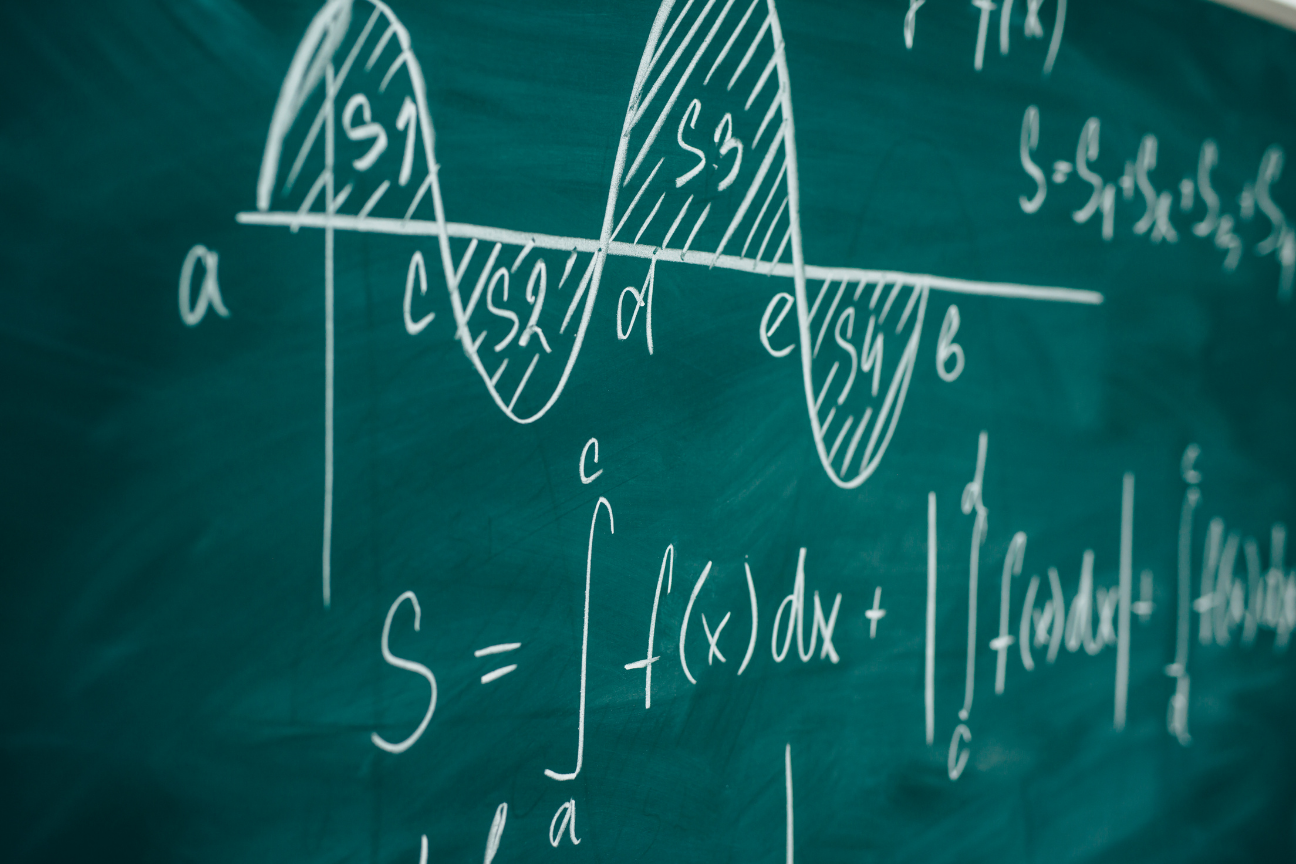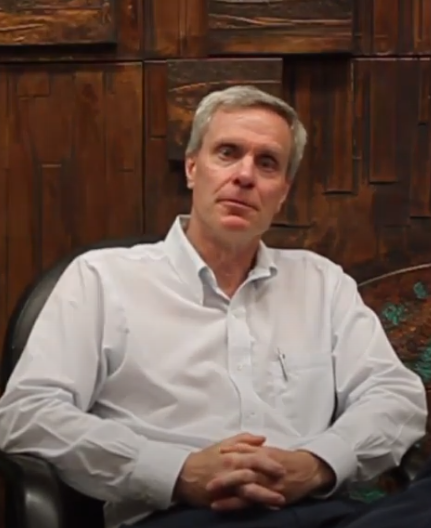Q: What do you call an old, reused calculus joke?
A: Derivative humour

ESC194: Calculus I is the first calculus course you will take in Engineering Science. It is arguably the most important course in Fall semester — it will change the way you look at mathematics and lay the groundwork for your future Engineering Science courses. From rigorously logical proofs to challenging practice problems, you’ll be exposed to many different aspects of Calculus. The concepts that you learn will appear in many of the EngSci courses and will be used throughout your engineering career, so make sure you learn them well.
Professors
Professor James Davis

Professor James (Jim) Davis is an alumnus of EngSci, having graduated from the Aerospace Engineering option with the class of 8T2. Professor Davis is affiliated with the University of Toronto Institute for Aerospace Studies (UTIAS) and has taught ESC194 for several decades. Outside of the classroom, his research and laboratory work revolve around the development of nuclear fusion as a future energy source. Specifically he focuses on the use of low-energy particle accelerators to simulate the effects of high-temperature plasmas on the materials proposed for the first-wall armor inside magnetic confinement fusion reactors.
Professor Peter Stangeby

Like Professor Davis, Professor Peter Stangeby is a graduate of the University of Toronto (although not from EngSci) and is likewise affiliated with UTIAS. Professor Stangeby first experienced profound satisfaction through teaching back in high school, and his passion for teaching has only grown since. He has gone on to obtain a bachelors in math and physics from U of T, a master’s in physics from U of T, and a DPhil in plasma physics from Oxford University, all the while contributing to considerable research in the area of magnetic fusion energy.
Professor Interview
“We need two hats – sometimes we need to put on our intuitive calculus hat, sometimes we need to put on our rigorous calculus hat”
“To dabble in [the concept of limits] is as good as nothing, you either go into it in a serious way, or you don’t bother at all. And in Engineering Science, we go into it in a serious way”
“You’re having fun, and you don’t know it. And it’s because you’re taking the whole thing too seriously – you need to relax. Because people in […] the math, science, engineering field, basically we get paid to have fun!”
Course Highlights
- The course is fast-paced and will teach you to learn efficiently and effectively. It is a difficult adjustment at first, but this skill will be incredibly valuable in the future.
- You’ll learn about a side of calculus that you may not have been exposed to: integral calculus. Now you’ll be able to find both the slope of a curve and the area under it. Integrals show up all over engineering and science. Learning about them will give you new tools for solving a variety of problems.
- The first principles approach of ESC194 helps you understand high school concepts on a fundamental mathematical level. The logical thinking skills you develop here will help you in your other courses, including MAT185 in the Winter semester.

- This course also serves as an introduction to differential equations, a field of math you’ll study in second year in MAT292. Solving differential equations will form a large part of most of the technical courses you take as an undergraduate engineering student, so make sure you pay attention!
Week in the Life of an ESC194 Student
Lectures
There are typically three lectures per week for ESC194. The lectures are fast-paced and cover a lot of material. The professors aim to do about 1-2 textbook sections per lecture, so prepare for an hour of intense focus. Lectures cover theory and many worked examples.
Tutorials
There are no practicals for ESC194. However, tutorials occur once per week and usually cover about 30-40 minutes of material from the lectures. The TAs are extremely helpful and explain content in a clear way, so this is the best time to ask questions about material you don’t understand and take notes along with the worked examples. The instruction is followed by a 10-to-15-minute quiz on the material you just went over. These quizzes seem small, but quiz marks add up and the skills and concepts you learn will help you succeed on the midterms and final. Completing the assigned textbook problems each week will help you prepare for the weekly quizzes, midterms, and final.
Assessments
There are no formal assignments for the course. However, you are provided with recommended practice problems every week. DO THESE! It will build your calculus skills and help prepare you for assessments. Some questions on quizzes, midterms, and exams are similar to those assigned.
We cannot stress this enough: the best way of succeeding in ESC194 is through practice. Spending a few extra hours per week on calculus questions will make a huge difference.
The assigned problems are all from the course textbook, Stewart’s Calculus. A nice thing about the textbook is that it can be bought in a package with a student solution manual. This contains worked solutions to all odd-numbered problems. You can use it to check your work, discover alternative solution methods, and help yourself if you get stuck!
Note: Although it can be helpful, the student solution manual is not required for this course. The Stewart textbook already contains the final answers to all odd-numbered questions.
Midterms & Exams
ESC194 has historically had two midterms and a final exam. The best way to study for these is by doing homework questions from the Stewart textbook. Once you have a strong understanding of these concepts and have practiced a variety of questions, you should verify your abilities by completing past midterms and exams (the questions on which resemble those from the textbook).
Keep in mind that while this strategy has worked for us, it is not universal. If it is not a good fit for you, that’s OK! Try different things and, if needed, consult with your Academic Advisor or the Engineering Learning Strategist.
Time is also an important factor on ESC194 assessments, so try to practice doing the questions quickly in addition to doing them well.
How to Succeed
Quick Tips & Equations
- Practice delta-epsilon proofs: \forall \varepsilon > 0 \exists \delta > 0 \text{ s.t. } 0 < |x-c| < \delta \Rightarrow |f(x) - L| < \varepsilon ;
Please don’t let this expression scare you! You are not expected to know this before coming into EngSci. You will get a step-by-step introduction at the beginning of the semester, but it is up to you to refine your skills.
- Try and get a good grasp of theorems such as the mean, intermediate, and extreme value theorems, as they might appear on exams. Plus, understanding these theorems is a gateway to further proofs in mathematics.
- Practice the different methods of calculating volumes of revolution, including the disk, washer, and shell methods with respect to both axes. Formulas are not provided on quizzes and exams, so ensure that you have these methods memorized.
- Although they are covered very quickly, ensure you can solve the many types of differential equations. By the end of the semester, you should be able to solve “nonhomogeneous 2nd order linear differential equations with constant coefficients” using methods such as the method of undetermined coefficients, principle of superposition, and variation of parameters; doesn’t that sound cool?!
- Practice curve sketching. Professors will go over a step-by-step method for curve sketching in lectures (also included in the Stewart textbook) – practicing and memorizing these steps will help you solve curve sketching questions in exams very quickly so you can dedicate more time to complex problems.
More Details
The textbook for this course, Stewart’s Calculus, is comprehensive. It explains topics in a clear way and includes a plethora of practice problems. Additionally, the lectures are well-aligned with textbook content, so you can always get clarification from the text if you missed something in lecture. Most importantly, questions on quizzes and exams are similar to those found in the textbook.
Officially, this is your textbook for the next three semesters. However, you’ll probably be using it for a lot longer. The field of calculus is unlikely to change for a while, so this textbook might last you a lifetime! Take good care of it.
We recognize that there are a lot of questions in the assigned problems. If you don’t have time to work through every single one, do not despair. That being said, try your best to do as many problems as you can. Also, be strategic: if you are comfortable with a certain type of question and there are 15 such questions, you may be able to skip some of them (just don’t skip all of them!). Focus on problems that you find more difficult.
If there are problems and topics that you really struggle with, don’t be afraid to ask for help! The TAs for this course are very enthusiastic and are there to support you. GEARS (Guided Engineering Academic Review Sessions) is also a great resource. The hour-long sessions hosted by upper-year EngScis happen throughout the week. At each of these sessions, you can go through calculus questions/concepts. More generally, any upper-year EngSci should be well-versed in calculus, so you can reach out to them as well.
This course is fast-paced and it is easy to fall behind. If this happens, you’ll miss out on important concepts and spend your time catching up on lecture content before midterms, rather than doing past exams. Most importantly, it is difficult to follow a lecture if you do not understand what happened in the previous one.
To avoid these challenges, we recommend that you attend all lectures and briefly review your notes before each one. You will also be provided with a tentative weekly schedule at the beginning of the term and skimming through the relevant Stewart textbook sections before a lecture can help you better prepare for it. And even if you haven’t fully understood a lecture, try your best to follow along and take notes, and review them after the fact.
As mentioned earlier, questions are very similar year-to-year and they generally follow the same format; therefore, the often-challenging past papers are a great resource with which you can ensure that you understand concepts and prepare yourself for exams (however, do not lose sleep over a particularly challenging question; your overall focus should be to understand concepts and refine your skills). Also, there are only a few proof questions assigned in the textbook – but at least one appears on the exam every year, so make sure to review these.
In ESC194 and ESC195, part marks are your best friend. If you get a question wrong or don’t have time to finish a calculus assessment, you might still get some marks…if you write down your steps. Detailing your thought process in a legible way helps your marker follow your solution. From there, they can assess your understanding of the content.
Beyond First Year
- In this course, you’ll be introduced to an important feature of university test-taking: time management and question selection. You’ll realize that time constraints may force you to choose between partially answering all questions on an exam or writing complete solutions for select questions.
- Calculus serves as a foundation for many engineering and science fields. Many of the concepts you cover in ESC194 reappear in other courses and will be useful throughout your engineering career.
- The materials covered here will serve as the basis for several second-year EngSci courses including AER210, PHY293 and MAT292, as well as upper-year courses across the majors.
Note: The course code for Calculus I used to be MAT194. You may still see it referred to as such on some websites (e.g. courses.skule.ca).
